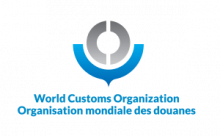

NEWS
Operation “COLIBRI PARAMUNO” Sees Law Enforcement Zero in on General Aviation
Brussels, Belgium, 17 March 2025 – The World Customs Organization (WCO) – European Union (EU) COLIBRI Project recently concluded its second international operation leading to significant seizures of narcotics and other contraband.
Memorandum of Cooperation signed between the WCO-EU COLIBRI Project and the Colombian Air Force
On 14th October 2024, The World Customs Organization (WCO) and the Air, Space and Cyberspace Intelligence Headquarters of the Colombian Air Force (Fuerza Aérea Colombiana - FAC) have signed a Memorandum of Cooperation (MoC) to strengthen their partnership within the context of the COLIBRI Project on monitoring and controlling General Aviation (GA).
…
General Aviation Security: highlights of the COLIBRI Project activities (June to August 2024)
Between June and August 2024, the COLIBRI Project, implemented by the World Customs Organization (WCO) and funded by the European Union (EU), continued to make significant strides in strengthening the monitoring and control of General Aviation (GA) across Latin America and the Caribbean (LAC) and West and Central Africa (WCA).
…
Who are we?

The World Customs Organization (WCO), established in 1952 as the Customs Co-operation Council (CCC), is an independent intergovernmental body whose mission is to enhance the effectiveness and efficiency of Customs administrations.
Today, the WCO represents 186 Customs administrations across the globe, which collectively process approximately 98% of world trade. As the global center of customs expertise, the WCO is the only international organization with competence in customs matters and can rightly call itself the voice of the international customs community.
For more information about the WCO visit the web site
Partners

European Union
The Illicit Flows Programme of the European Union:
For more than ten years, the Cocaine and Heroin Route Programmes of the European Union have strived to address the challenges of an often-fragmented law enforcement approach along established illicit trafficking routes into the EU.
From source to destination, countries located along illicit trafficking routes often suffer the harmful consequences that affect daily life. Fostering violence and corruption and undermining good governance, illicit trafficking jeopardises national security and economic prosperity, leads to public health problems and causes significant environmental damage.


